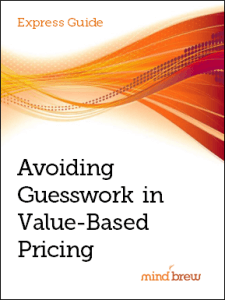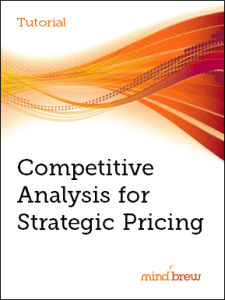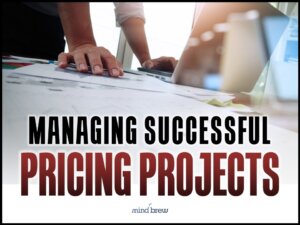Most of the time, when you hear about a conspiracy theory, it’s easy to laugh it off. There’s the one that says the real Paul McCartney has been dead since 1966. Another says Katy Perry is really JonBenet Ramsey. And of course, you also have those amazing intellectuals who believe the Earth is flat.
But there’s one conspiracy that you really should take seriously: your company’s internal conspiracy against value pricing initiatives.
Now, don’t misunderstand us. We’re not saying there is an evil mastermind or sinister cabal of plotters within your company that is determined to thwart your value pricing project.
However, most value pricing efforts do run into unintentional conspiracies that result from entrenched attitudes within the company.
You see, in order to be truly successful, a value pricing initiative is going to involve some market research. But the people in your company already think they understand your market.
That sets the stage for conflict.
Management and many of your coworkers expect that your market research will confirm what they already know. After all, they think that they already understand your customers and your product. If you uncover information that contradicts or even is just slightly different than their understanding, they are going to be resistant.
And because those assumptions are likely to be widespread throughout your company, at times it is going to feel like everyone is conspiring against you.
So why bother?
It’s worth pushing ahead with your research—despite the opposition—because the potential benefits of accurate market knowledge are so worthwhile:
- Save time, rework and frustration. Good market research can save you from potential mistakes. If you can spot a potential flaw in your value pricing initiative ahead of time, that can save a ton of time and effort.
- Improve adoption by sales. While salespeople might show some initial resistance to ideas that counter their gut instincts, you can usually win them over by showing them the actual words of actual prospects and customers. When they see that your project is based on hard evidence collected in the field, they’ll be much more likely to comply with value pricing efforts.
- Produce better results. It sort of goes without saying, but if you base your efforts on good data, you’ll do a better job with your pricing. And that means more sales at better margins.
- Gain competitive advantage. If you’re using value pricing based on hard research and your competitors aren’t (and they probably aren’t), you’re going to have a real advantage in the marketplace. And that, in turn, yields even better results.
If that has you convinced, we have a trio of resources to help you get your value pricing efforts off the ground. Start with Avoiding Guesswork in Value-Based Pricing. It explains the whys and hows of the necessary research.
Then move on to Exposing Your Differential Value Step-by-Step. It walks you through the process of distilling all that research into the insights that will allow you get the best prices for your products.
You’ll also want to go through the Step-by-Step Competitive Analysis for Strategic Pricing. It will help you put your differential value in context in the marketplace so that you can identify your company’s best opportunities.
Even if it sometimes seems like everyone is out to get you. Don’t give up on your value pricing research. In the end, the benefits are worth it.
















